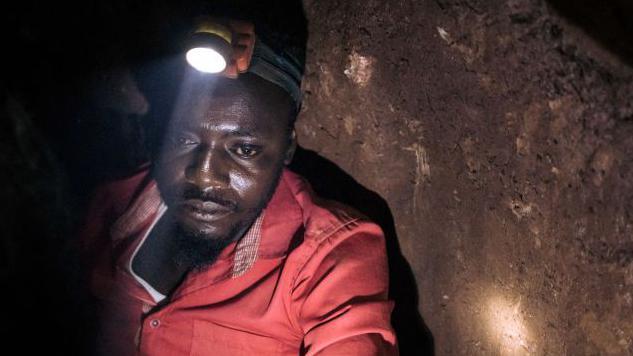The ongoing conflict in the mineral-rich eastern region of the Democratic Republic of Congo (DR Congo) has drawn renewed attention with the recent legal actions taken against tech giant Apple. The Congolese government has filed criminal complaints in France and Belgium, accusing Apple of sourcing conflict minerals that are allegedly linked to violence and human rights abuses perpetrated by armed groups operating in the region. The complaints assert that Apple’s supply chain is intertwined with these so-called “blood minerals” — specifically tin, tantalum, and tungsten — that are extracted under violent and exploitative conditions. The legal actions highlight the significant moral and ethical questions surrounding global supply chains and their connections to regional unrest.
Apple has contested these allegations, stating that it “strongly disputes” the claims made by the Congolese authorities. The tech company emphasizes its commitment to responsible sourcing of minerals and insists that it adheres to high standards in its supply chain practices. As this case unfolds, authorities in France and Belgium are tasked with examining whether there is sufficient evidence to pursue the legal complaints further, diving into the complex interplay between corporate responsibility and the geopolitical ramifications of mineral extraction.
The lawyers representing the DR Congo have articulated concerns about how conflict minerals are laundered through international supply chains, facilitating a cycle of violence and financing for militias and terrorist organizations. These practices not only perpetuate armed conflicts but also contribute to gross human rights violations, such as forced child labor and significant environmental degradation. In light of these grave allegations, Apple has taken steps to suspend the sourcing of minerals from the DR Congo and Rwanda, signaling their awareness of the challenges related to due diligence in a conflict-ridden area.
The persistent conflict in eastern DR Congo over the past decades has largely been fueled by the global demand for its rich mineral resources. As rights organizations have long pointed out, a considerable proportion of the minerals extracted legitimately, as well as those from conflict-controlled operations, is believed to be transported to neighboring Rwanda and eventually integrated into electronic devices used worldwide. This interconnection highlights the broader implications of consumer choices and the importance of ethical sourcing practices in the tech industry.
Rwanda, for its part, has responded to the Congolese government’s accusations by labeling the legal action against Apple as a media spectacle. The Rwandan government has reiterated its stance of not engaging in the sale of conflict minerals to technology firms like Apple, thus complicating the narrative surrounding the mineral trade in the region. This friction between the Congolese and Rwandan governments further underscores the intricate political dynamics at play in the eastern DR Congo, where territorial disputes and resource competition continue to fuel tensions.
As the situation evolves, it serves as a reminder of the precarious nature of resource extraction in conflict zones and the responsibilities that multinational corporations hold in mitigating harm through their supply chains. The allegations against Apple illuminate the need for increased transparency and accountability in sourcing practices, a call echoed by various stakeholders, including human rights advocates and concerned consumers. The legal proceedings in France and Belgium could set significant precedents in the ongoing battle against the exploitation of conflict minerals and push for enhanced ethical standards in global supply chains.

